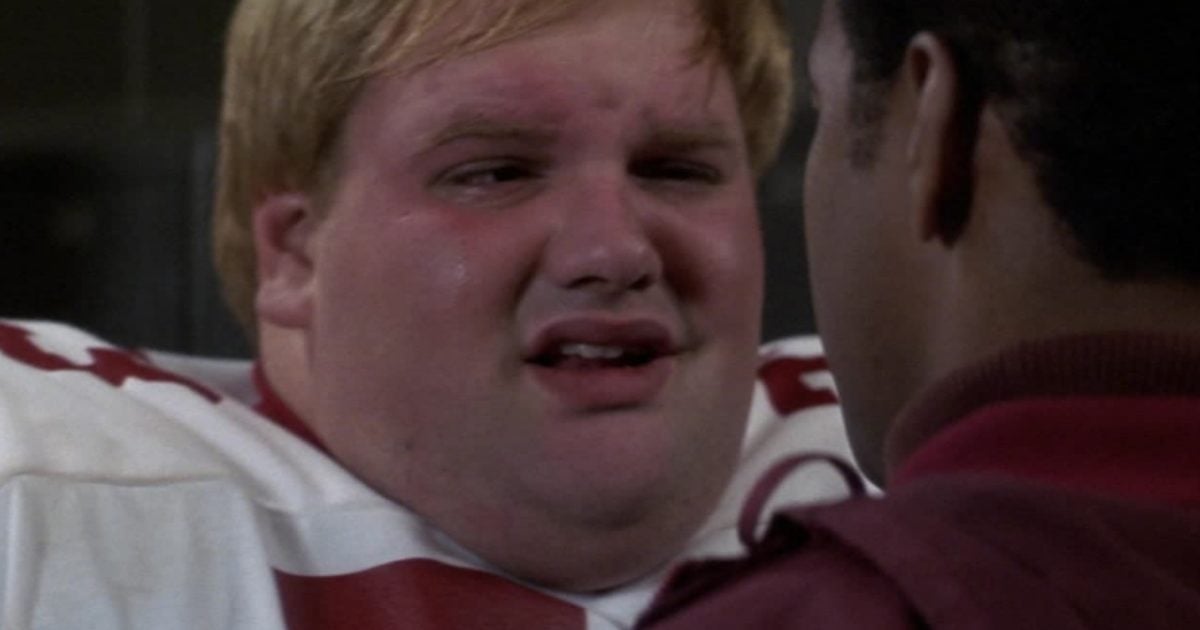Improving Your Mental Wellbeing Through a Health Challenge
- Ethan Suplee, known for his acting roles in “Remember the Titans,” is an inspiration to anyone struggling while going through a health challenge.
- The 46-year-old’s dramatic weight loss of nearly 300 pounds took place as he coped with mental health issues and an addiction to drugs and alcohol.
- Now, Suplee motivates others to stay active, eat healthy, and never give up on their goals, on his Instagram page and American Glutton podcast.
- From what Suplee has explained, it’s even more evident that taking care of your mental health while you are going through a health challenge, like a cancer diagnosis, or even just trying to lose weight, is certainly a process.
- When faced with a new challenge, it's important to make sure that these coping mechanisms you have to care for your mental health continue to work throughout the process.
Suplee is known for portraying Louis Lastik opposite Denzel Washington in “Remember the Titans,” as well as his roles in “My Name is Earl,” “American History X,” and “Boy Meets World.”
Read More
View this post on Instagram
The father of two and loving husband to producer Brandy Lewis was 24 years old when he embarked on the road to health, following a check-in to a drug and alcohol addiction treatment center (rehab) when the regular scales couldn’t calculate his weight.

The 6-foot-1 actor had congestive heart failure at the time of that weight in. Heart failure is a condition in which the heart doesn’t pump blood as well as it should.
He has since figured out how to sustain a healthy body weight. However, he first had to make peace within himself prior to getting the weight off.
He told TODAY Health, during an interview back in 2021, how “utterly horrified” he was when that rehab scale wasn’t able to weigh him.
Suplee recounted realizing in 2018 that he needed to go deeper than simply cutting out carbs for example. He needed to change his relationship with food entirely.
In one of Suplee’s recent Instagram posts, he showed off before and after photos of his weight loss, writing, “Once upon a time, the whole world was an impossibility. Conquering all of it is still impossible, so I'm just concentrating on today.
“If today becomes too much, I will focus on right now. Right now, I'm ok, I will beat right now.”
Overcoming Negative Feelings
- About 75 Million U.S. Adults Have Had Depression, New Survey Suggests How Celebrities Like Gwyneth Paltrow, 50, Overcame It
- ‘Dirty Jobs’ Star Mike Rowe’s Mom Peggy Rowe Was Diagnosed With Breast Cancer and Got Really Angry How She Found Healing in a Local Support Group
- Less Than 100-Pounds Growing Up, How This 58-Year-Old Man Found Purpose in Hip Hop Dancing: ‘Strong Men Cry’ Too
In an earlier post, sharing another photo from his heavier-set days, Suplee opened up about how change is inevitable when healing.
“Changing one thing never led to a miraculous recovery and changing everything all at once didn't either,” he explained.
“It took many years for me to understand that in order to become a different person, many instances of small change were required, but that I wouldn't understand them all on day one. That getting good at a single change might then require another change to bolster improvement.”
“Self-improvement has no end and if I'm not working towards this in some way, I am in deterioration. I prefer getting better,” he added.
View this post on Instagram
In fact, in 2021, Suplee admitted he still has negative feelings about himself. According to Men’s Health, Suplee told Joe Rogan about looking at photos of himself in the past, “It’s incredibly satisfying, but look.
“The reality is that I have mental illness and I don’t look at myself and think, ‘God I look great.’ I see nothing but negative stuff every day and I try to convince myself.'”
Suplee ultimately lost and keeps his weight down by eating healthy and strength training, which he often takes to Instagram to show his followers.

His weight loss struggle is similar to “21 Jump Street” star Jonah Hill, who enlisted the help of a nutritionist and trainer when he was trying to lose weight in 2011, and then again in 2017.
Speaking to therapist Dr. Phil Stutz in the Netflix documentary “Stutz,” Hill discussed his relationship with his body, specifically the trauma of fatphobic comments.
“Meeting you and starting our process was out of desperation to get happier,” Hill said to Dr. Stutz in the film. “I just had no healthy self-esteem. Having grown up overweight was something that sounds like not a big deal…but for me personally, it intensely f–ked me up.”
RELATED: Dr. Ken Miller Says A Healthy Diet & Regular Workout Routine Are Important
Hill, who used talk therapy to cope during his weight loss, added, “I thought if I got successful, they wouldn't see [my weight]. And then I did, and all people did was just say more of that. And it hurt…and that still resides in me in a way that comes up.”
Being Optimistic & Coping With Mental Health Long Term
From what Ethan Suplee has explained, it’s even more evident that taking care of your mental health while you are going through a health challenge, like a cancer diagnosis, or even just trying to lose weight, is certainly a process.
People may turn to many different avenues to help them cope, such as traditional therapy, support groups, meditation, and sometimes medical intervention such as antidepressants.
When faced with a new challenge, it's important to make sure that these coping mechanisms you have to care for your mental health continue to work throughout the process.
“I think flexibility is really a core of how to manage it,” Dr. Samantha Boardman, a New York-based psychiatrist and author, previously told SurvivorNet. “Are your coping strategies that you're using now, are they helpful in the way that they were in the past?”
Dr. Boardman encourages people who may be struggling with their mental well-being to take stock of their belief system and ask themselves the following questions:
- Could these beliefs be harming me (like feelings of self-doubt or negativity)?
- Is my mindset holding me back from positive steps forward?
Dr. Boardman suggests working to recognize any negative thoughts that may be making the process of cancer treatment more difficult, and trying to dismantle those to be more “realistically optimistic.”
SurvivorNetTV Presents: Breaking the Cycle The Power of Mindset
Questions to Ask Your Doctor
- What type of treatment should I seek if I'm struggling with negative thoughts?
- Are there any local support groups for people in my situation?
- How might struggling with mental health affect my treatment?
- Should I consider medical interventions such as antidepressants?
Contributing: SurvivorNet Staff
Learn more about SurvivorNet's rigorous medical review process.


